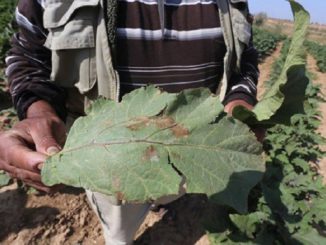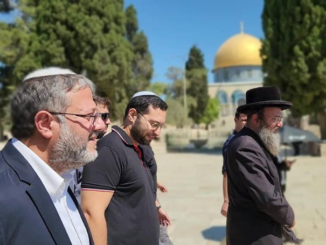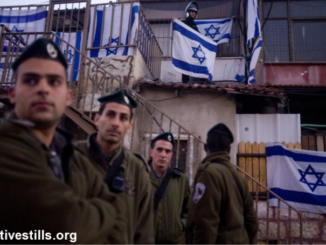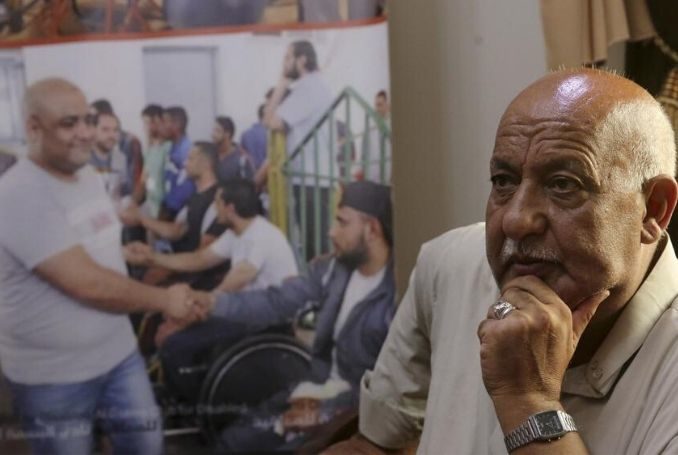
Israel has yet again convicted an innocent person.
Mohammed al-Halabi, a former humanitarian worker for World Vision, was found by an Israeli court to be “guilty of financing terrorism.” The UN has already condemned the ruling. And rightfully so. There’s not a single shred of evidence against al-Halabi.
As journalist Ken Chitwood recently details:
“After Halabi’s indictment in 2016, World Vision hired Deloitte and DLA Piper, one of the world’s largest multinational law firms, to conduct a forensic investigation, looking for the missing funds the Israeli authorities said had been diverted to terrorist activity. The investigators looked at more than 280,000 documents, interviewed more than 180 people, and probed every aspect of World Vision’s Gaza operation between 2011 and 2016.”
The firm’s conclusion: There was no evidence that Halabi did anything wrong.
Like a cruel magician, Israel pulled “evidence” from thin air. It’s their modus operandi, even in what’s supposed to be an impartial court of low, to lie to the world as to why they’re oppressing Palestinians. Al-Halabi, who—before his arbitrary incarceration six years ago—was a hindrance to that. He was helping Palestinians too much. He was making it harder for Israel to destroy their lives. He was too proactive in easing their unnecessary plight.
That’s why he was found guilty. The only terrorism in his life was the Israeli siege on Gaza that he, through hard work, lessened in impact. Not good for the terrorizer. You want to maximize your impact.
What’s particularly upsetting for me is how I now see al-Halabi’s father, Khalil, suffer. I have had the privilege of getting to know him in the last few months, ever since I wrote this piece for The Palestine Chronicle.
He’s a humble and courageous person. He has done a great deal to try and achieve justice for his son—speaking at the UN, making earnest pleas through Facebook videos, and collaborating with a myriad of civil society organizations. This is not a father making excuses, protecting el-Halabi from discipline deserved. Khalil rather, for years, has called on the world to prevent Israel from further dehumanizing his son—representing the countless Palestinians (many of whom are children) held illegally in administrative detention.
Canada, the United States, UK—countries that routinely present themselves as champions of human rights—did nothing to listen. They should have intervened. Sent Israel the message, as through long-overdue sanctions, that you do not deprive people of their liberty so you can cleanse the nation to which they belong. You cannot force their families—in this case not only Khalil but al-Halabi’s children—to endure the agony. You cannot genuinely claim to be fighting terrorism when you yourselves are terrorists.
Al-Halabi’s conviction reveals that not only are the Israeli courts, as well as the larger Israeli regime, invested in punishing innocent people. They are also in the business of producing bogus stories, presenting it to the world as truth, as if to say, “You see. We are under threat. Our violence is for our security.”
The world is believing such lies increasingly less. Online and independent news media, defying what the likes of Israeli state founder David Ben-Gurion said years ago about the historical amnesia, ensures people now see what Israel has long been doing to Palestine. The falsehoods Israel continues to tell the world are by the same token losing persuasive force.
Those who still believe that Israel is a democracy are not far away from seeing that from the lie it is; the internet teaches swiftly, revealing what used to be hidden. In its arrogance, Israel may think it can reverse its trend. Hints of that are seen it its desperate ploys to suppress international awareness of how they’re destroying Palestine. But, as we’re seeing, no powerful state can ultimately compete with the technological flow of information.
Don’t despair dear Khalil. Your son will one day be free. Our ‘leaders’, insisting we buy Israeli lies, be damned. The world, more than ever, is rising up for Palestine.
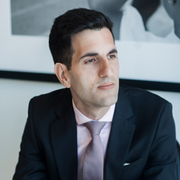
– Paul Salvatori is a Toronto-based journalist, community worker and artist. Much of his work on Palestine involves public education, such as through his recently created interview series, “Palestine in Perspective” (The Dark Room Podcast), where he speaks with writers, scholars and activists. He contributed this article to The Palestine Chronicle.


